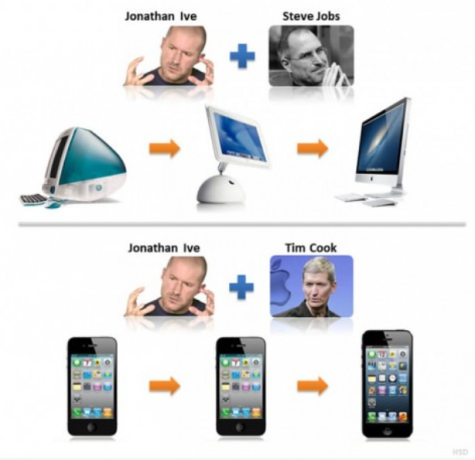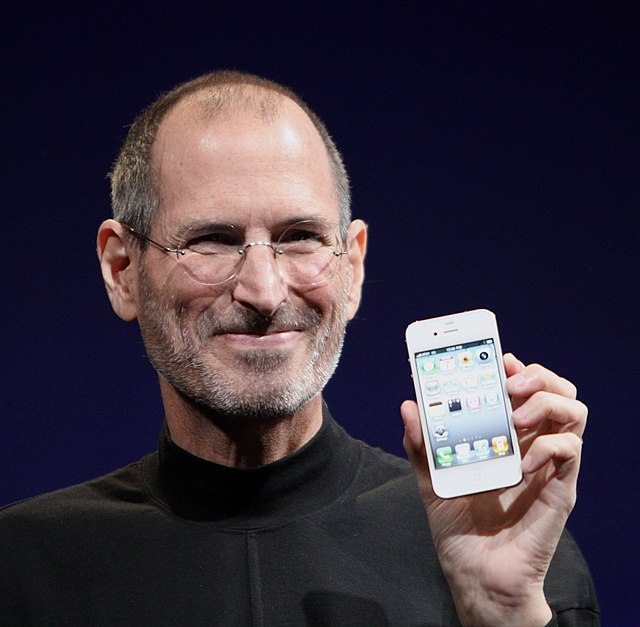Apple co-founder Steve Jobs once declared his company’s slogan as “Think Different.” However, that motto seems to have washed away in the last decade.
Fast Company, an online publication that focuses on business and technology, ranked Apple as the most innovative company in 2011. In 2021, Apple did not even make the list. Under Tim Cook, Apple has only made incremental improvements and tiny breakthroughs in the tech market.
From Steve Jobs’s return to power in 1997 to his death in 2011, Apple was at the top of the world in terms of innovation. They first innovated the iMac, which returned them to relevance after declining for years. In 2001, Apple released the iPod, creating a massive disruption in the digital audio player business. The iPod could store far more songs than any other digital MP3 player and presented an appealing and effortless interface.
Apple proceeded to innovate more than ever in the late 2000s. Apple created the iPhone in 2007, which was the first smartphone and a significant upgrade from previous handheld devices. People then realized how far ahead the iPhone was compared to other phones, and its use became widespread across the world. Apple then released the iPad in 2010, another innovation that became commonplace in households everywhere.
All of this restructuring allowed Apple to go from rapid declining to emerging as one of the most profitable companies in the world. Today, Apple products can be found everywhere, and billions of people own Apple products because of this upheaval.
In 2011, Steve Jobs passed away, and Tim Cook succeeded him as Apple’s chief executive officer; ever since, Apple has innovated very little and has resorted to making incremental improvements to products that already exist.
The most prominent example of incremental innovation is the iPhone in almost all of its aspects. Apple’s iOS 14 software update adds minor improvements to existing functions, but nothing new or worth talking about.
The hardware is not much better. Phones are getting bigger, and cameras are annexed. Occasionally, there is a significant improvement, like removing the home button to add a bigger display screen, but these massive improvements are sporadic.
Even the device’s design, something Apple is widely known for, has made very few changes. iPhones succeeding the iPhone 5 looked pretty similar until the iPhone X came out. The phones that came after the iPhone X look quite identical to the iPhone X.
Although newer iPhones tend to last longer, people also do not see a need to upgrade because they don’t see the need to buy technology with no new features. As a result, people are buying iPhones less than ever.
I use an iPhone 6s, widely considered old and outdated, but it operates on the latest IOS and works perfectly fine. I do not see a need to upgrade because the newer phones do not have any significant technological advances that the iPhone 6s doesn’t have.

According to Business of Apps, Apple’s iPhone and iPad sales have been relatively stagnant. From 2015 to 2020, Apple’s iPhone sales declined by 14%. This stagnation comes from Apple’s complacency and competition from smartphone companies like Huawei.
Even though Apple has only been making incremental improvements to existing products, they still occasionally dabble into innovation. Their most significant creations are the Apple Watch and the Apple Airpods. However, these innovations are becoming quite rare, and it is not enough to compete against other tech companies.
Other companies are catching up with Apple in terms of innovation. Samsung is one of Apple’s biggest rivals, and it has not slowed in terms of inventing. Unlike Apple, Samsung created a folding smartphone, a massive advance in smartphone technology. Samsung also has power sharing, which gives Samsung phones the ability to charge other Samsung phones or earbuds.
As a matter of fact, Samsung was able to innovate features like water resistance and fingerprint scanning far before Apple could. It seems like Apple is playing catch-up in smartphone innovation, and eventually, they will be left in the dust.
Complacency is the enemy of success, and Apple has indulged in plenty of complacencies under Tim Cook’s leadership. They have gone from disrupting the tech market to incremental improvements to already established products. Eventually, their slow and steady decline will catch up to them as other tech companies surpass them.






















